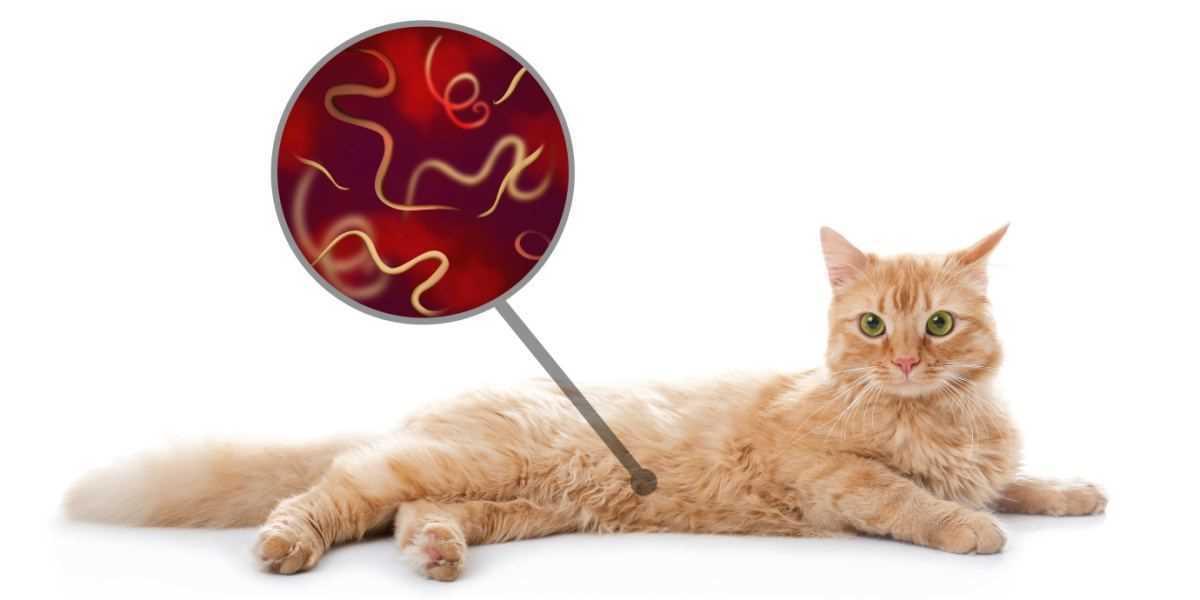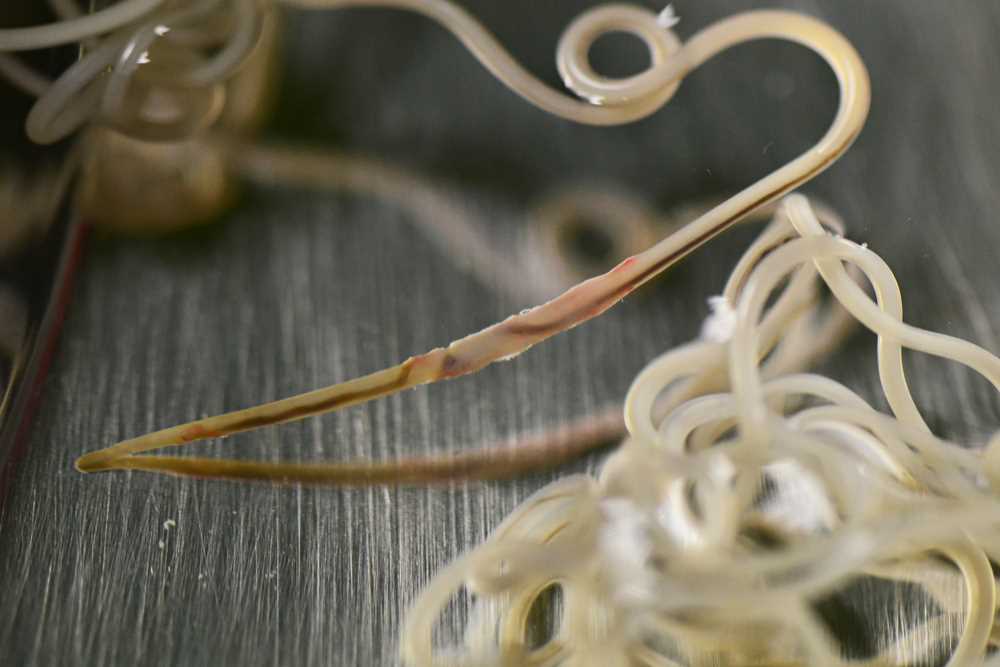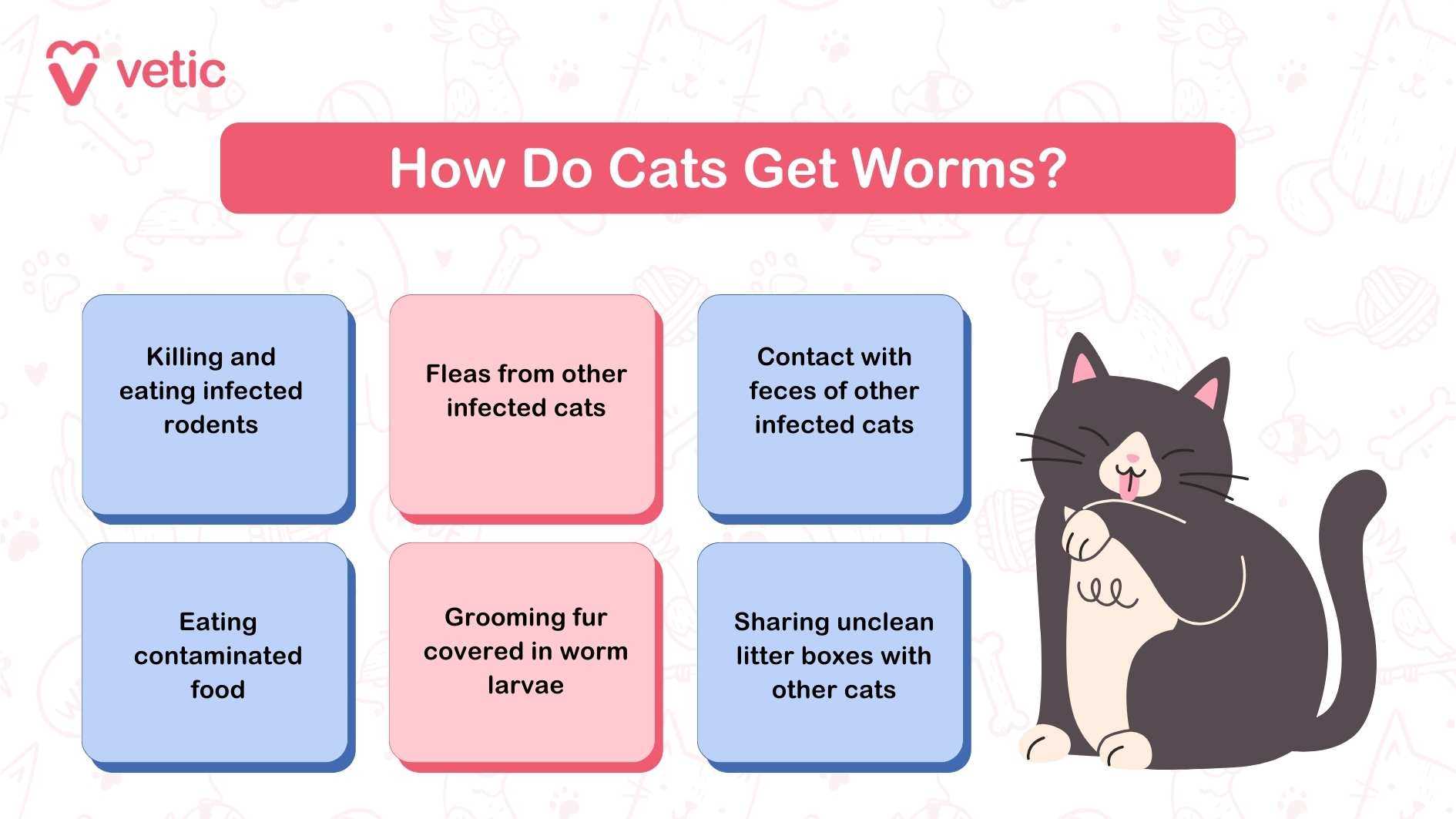It’s quite common for pet owners to wonder if their furry companions will expel any unwanted guests following a treatment for internal parasites. If you notice any unusual contents in the litter box during the days that follow the administration of the medication, it’s not unusual. Some might indeed observe signs that indicate the elimination of these nuisances.
Typically, the process involves the breakdown of those pesky invaders, which can manifest in various forms. It’s crucial to keep an eye on your feline’s elimination habits during this period. You may spot segments or even whole individuals expelled through the digestive tract, especially in the days immediately following treatment.
Monitoring your buddy’s health post-treatment is essential. Should you see anything suspicious or have concerns about their well-being, consulting a veterinarian is the best course of action. Regular check-ups and maintaining a proper deworming schedule can help ensure the continued health of your beloved companion.
Do Cats Poop Out Worms After Being Dewormed
Yes, it’s possible to see remnants of parasites in the litter box following treatment. When medication takes effect, it can help expel unwanted guests from the digestive system. This might result in visible segments or even entire creatures, depending on the type of infestation and the specific treatment administered.
What to Expect
Following a deworming regimen, keep an eye on elimination habits. You may notice changes in frequency or consistency. It’s common for some felines to experience mild gastrointestinal upset. Monitoring their overall health and behavior is crucial during this time.
Consult Your Vet
If anything seems off, like persistent discomfort or unusual output, reach out to a veterinarian. They can provide tailored advice and ensure that the treatment was effective. Regular check-ups can help maintain a healthy balance and prevent future issues.
Identifying Worm Expulsion Signs in Cats Post-Deworming
To determine if your feline companion is expelling parasites, observe the following indicators:
Physical Signs
- Presence of segments resembling rice grains in feces.
- Unusual straining during litter box visits.
- Change in stool consistency, such as softer or more liquid forms.
- Visible discomfort or agitation while eliminating.
Behavioral Changes

- Increased grooming of the rear area.
- Restlessness or frequent attempts to use the litter box.
- Unusual vocalizations during bathroom trips.
- Loss of appetite or changes in eating habits.
Monitoring these signs for a few days post-treatment is vital. If any of these symptoms persist beyond a week or worsen, a visit to the veterinarian is recommended for further evaluation.
Understanding the Deworming Process and Its Effects on Cat Health

Regular veterinary check-ups are crucial for maintaining health. Deworming treatments play a significant role in ensuring that internal parasites are eliminated, preventing potential health issues. The process typically involves administering medication that targets specific types of parasites, leading to their eventual expulsion from the body.
It’s essential to follow your vet’s guidelines on dosage and timing for the deworming product. Observing your companion’s behavior and health post-treatment can provide insight into the treatment’s effectiveness. Signs like changes in appetite or energy levels may indicate how well they are responding.
Monitoring for any adverse reactions is also important. If you notice unusual symptoms, such as vomiting or diarrhea, consult your veterinarian promptly. Keeping an eye on your furry friend’s litter box can help you spot any remnants of parasites, which may indicate the treatment is working.
After a successful treatment, maintaining a clean environment is vital. Regular cleaning of litter boxes and living spaces helps to prevent reinfection. Additionally, discussing dietary needs with your vet, including whether can cats eat eel, can contribute to overall wellness.
Ultimately, staying proactive about health care through deworming and regular check-ups ensures a happy and healthy life for your furry friend.
When to Consult a Veterinarian After Deworming Treatment

If there’s persistent vomiting or diarrhea lasting more than a day or two, it’s time to reach out to a vet. Changes in appetite, such as refusing food or excessive hunger, can also indicate that something isn’t right. If unusual lethargy accompanies these symptoms, don’t hesitate to get professional advice.
Another important sign is the presence of blood in the stool or any unusual coloration. If my human notices this, a vet visit is necessary. Additionally, if there’s a noticeable lack of improvement in my behavior or health within a week, consulting a veterinarian is crucial.
In case the treatment has been followed correctly but there are still signs of parasites, taking me to the vet is the best course of action. Regular follow-ups after the treatment can help ensure that everything is on track and that I’m feeling my best.
It’s quite common for pet owners to wonder if their furry companions will expel any unwanted guests following a treatment for internal parasites. If you notice any unusual contents in the litter box during the days that follow the administration of the medication, it’s not unusual. Some might indeed observe signs that indicate the elimination of these nuisances.
Typically, the process involves the breakdown of those pesky invaders, which can manifest in various forms. It’s crucial to keep an eye on your feline’s elimination habits during this period. You may spot segments or even whole individuals expelled through the digestive tract, especially in the days immediately following treatment.
Monitoring your buddy’s health post-treatment is essential. Should you see anything suspicious or have concerns about their well-being, consulting a veterinarian is the best course of action. Regular check-ups and maintaining a proper deworming schedule can help ensure the continued health of your beloved companion.
Do Cats Poop Out Worms After Being Dewormed
Yes, it’s possible to see remnants of parasites in the litter box following treatment. When medication takes effect, it can help expel unwanted guests from the digestive system. This might result in visible segments or even entire creatures, depending on the type of infestation and the specific treatment administered.
What to Expect
Following a deworming regimen, keep an eye on elimination habits. You may notice changes in frequency or consistency. It’s common for some felines to experience mild gastrointestinal upset. Monitoring their overall health and behavior is crucial during this time.
Consult Your Vet
If anything seems off, like persistent discomfort or unusual output, reach out to a veterinarian. They can provide tailored advice and ensure that the treatment was effective. Regular check-ups can help maintain a healthy balance and prevent future issues.
Identifying Worm Expulsion Signs in Cats Post-Deworming
To determine if your feline companion is expelling parasites, observe the following indicators:
Physical Signs
- Presence of segments resembling rice grains in feces.
- Unusual straining during litter box visits.
- Change in stool consistency, such as softer or more liquid forms.
- Visible discomfort or agitation while eliminating.
Behavioral Changes

- Increased grooming of the rear area.
- Restlessness or frequent attempts to use the litter box.
- Unusual vocalizations during bathroom trips.
- Loss of appetite or changes in eating habits.
Monitoring these signs for a few days post-treatment is vital. If any of these symptoms persist beyond a week or worsen, a visit to the veterinarian is recommended for further evaluation.
Understanding the Deworming Process and Its Effects on Cat Health

Regular veterinary check-ups are crucial for maintaining health. Deworming treatments play a significant role in ensuring that internal parasites are eliminated, preventing potential health issues. The process typically involves administering medication that targets specific types of parasites, leading to their eventual expulsion from the body.
It’s essential to follow your vet’s guidelines on dosage and timing for the deworming product. Observing your companion’s behavior and health post-treatment can provide insight into the treatment’s effectiveness. Signs like changes in appetite or energy levels may indicate how well they are responding.
Monitoring for any adverse reactions is also important. If you notice unusual symptoms, such as vomiting or diarrhea, consult your veterinarian promptly. Keeping an eye on your furry friend’s litter box can help you spot any remnants of parasites, which may indicate the treatment is working.
After a successful treatment, maintaining a clean environment is vital. Regular cleaning of litter boxes and living spaces helps to prevent reinfection. Additionally, discussing dietary needs with your vet, including whether can cats eat eel, can contribute to overall wellness.
Ultimately, staying proactive about health care through deworming and regular check-ups ensures a happy and healthy life for your furry friend.
When to Consult a Veterinarian After Deworming Treatment

If there’s persistent vomiting or diarrhea lasting more than a day or two, it’s time to reach out to a vet. Changes in appetite, such as refusing food or excessive hunger, can also indicate that something isn’t right. If unusual lethargy accompanies these symptoms, don’t hesitate to get professional advice.
Another important sign is the presence of blood in the stool or any unusual coloration. If my human notices this, a vet visit is necessary. Additionally, if there’s a noticeable lack of improvement in my behavior or health within a week, consulting a veterinarian is crucial.
In case the treatment has been followed correctly but there are still signs of parasites, taking me to the vet is the best course of action. Regular follow-ups after the treatment can help ensure that everything is on track and that I’m feeling my best.
It’s quite common for pet owners to wonder if their furry companions will expel any unwanted guests following a treatment for internal parasites. If you notice any unusual contents in the litter box during the days that follow the administration of the medication, it’s not unusual. Some might indeed observe signs that indicate the elimination of these nuisances.
Typically, the process involves the breakdown of those pesky invaders, which can manifest in various forms. It’s crucial to keep an eye on your feline’s elimination habits during this period. You may spot segments or even whole individuals expelled through the digestive tract, especially in the days immediately following treatment.
Monitoring your buddy’s health post-treatment is essential. Should you see anything suspicious or have concerns about their well-being, consulting a veterinarian is the best course of action. Regular check-ups and maintaining a proper deworming schedule can help ensure the continued health of your beloved companion.
Do Cats Poop Out Worms After Being Dewormed
Yes, it’s possible to see remnants of parasites in the litter box following treatment. When medication takes effect, it can help expel unwanted guests from the digestive system. This might result in visible segments or even entire creatures, depending on the type of infestation and the specific treatment administered.
What to Expect
Following a deworming regimen, keep an eye on elimination habits. You may notice changes in frequency or consistency. It’s common for some felines to experience mild gastrointestinal upset. Monitoring their overall health and behavior is crucial during this time.
Consult Your Vet
If anything seems off, like persistent discomfort or unusual output, reach out to a veterinarian. They can provide tailored advice and ensure that the treatment was effective. Regular check-ups can help maintain a healthy balance and prevent future issues.
Identifying Worm Expulsion Signs in Cats Post-Deworming
To determine if your feline companion is expelling parasites, observe the following indicators:
Physical Signs
- Presence of segments resembling rice grains in feces.
- Unusual straining during litter box visits.
- Change in stool consistency, such as softer or more liquid forms.
- Visible discomfort or agitation while eliminating.
Behavioral Changes

- Increased grooming of the rear area.
- Restlessness or frequent attempts to use the litter box.
- Unusual vocalizations during bathroom trips.
- Loss of appetite or changes in eating habits.
Monitoring these signs for a few days post-treatment is vital. If any of these symptoms persist beyond a week or worsen, a visit to the veterinarian is recommended for further evaluation.
Understanding the Deworming Process and Its Effects on Cat Health

Regular veterinary check-ups are crucial for maintaining health. Deworming treatments play a significant role in ensuring that internal parasites are eliminated, preventing potential health issues. The process typically involves administering medication that targets specific types of parasites, leading to their eventual expulsion from the body.
It’s essential to follow your vet’s guidelines on dosage and timing for the deworming product. Observing your companion’s behavior and health post-treatment can provide insight into the treatment’s effectiveness. Signs like changes in appetite or energy levels may indicate how well they are responding.
Monitoring for any adverse reactions is also important. If you notice unusual symptoms, such as vomiting or diarrhea, consult your veterinarian promptly. Keeping an eye on your furry friend’s litter box can help you spot any remnants of parasites, which may indicate the treatment is working.
After a successful treatment, maintaining a clean environment is vital. Regular cleaning of litter boxes and living spaces helps to prevent reinfection. Additionally, discussing dietary needs with your vet, including whether can cats eat eel, can contribute to overall wellness.
Ultimately, staying proactive about health care through deworming and regular check-ups ensures a happy and healthy life for your furry friend.
When to Consult a Veterinarian After Deworming Treatment

If there’s persistent vomiting or diarrhea lasting more than a day or two, it’s time to reach out to a vet. Changes in appetite, such as refusing food or excessive hunger, can also indicate that something isn’t right. If unusual lethargy accompanies these symptoms, don’t hesitate to get professional advice.
Another important sign is the presence of blood in the stool or any unusual coloration. If my human notices this, a vet visit is necessary. Additionally, if there’s a noticeable lack of improvement in my behavior or health within a week, consulting a veterinarian is crucial.
In case the treatment has been followed correctly but there are still signs of parasites, taking me to the vet is the best course of action. Regular follow-ups after the treatment can help ensure that everything is on track and that I’m feeling my best.







